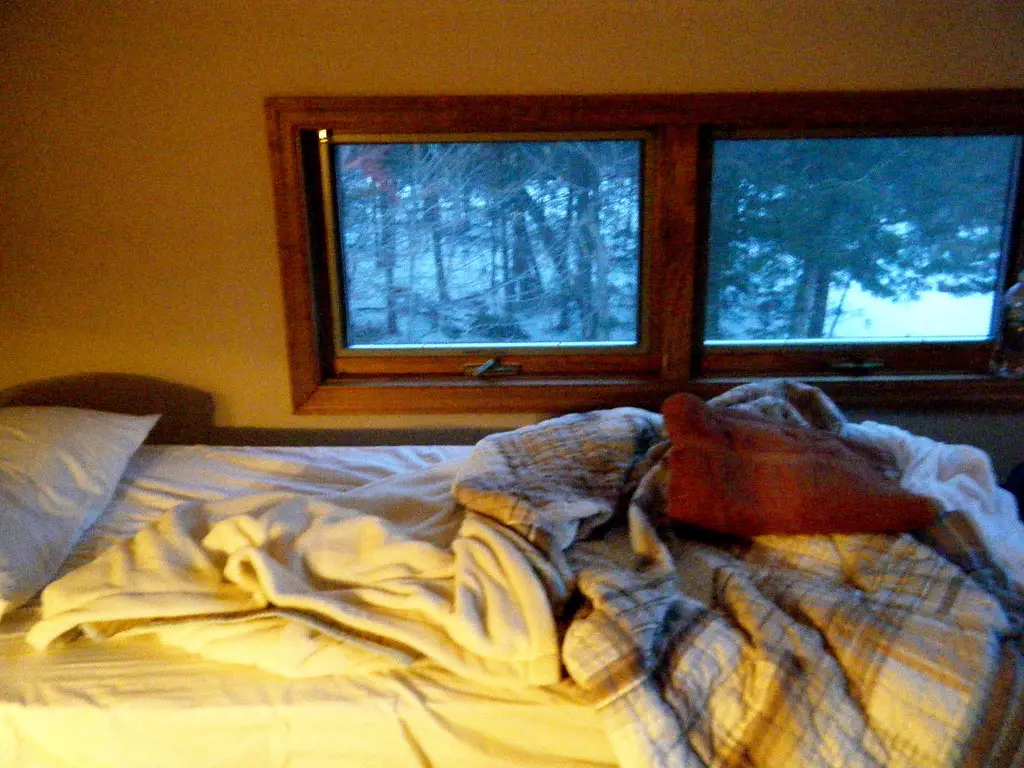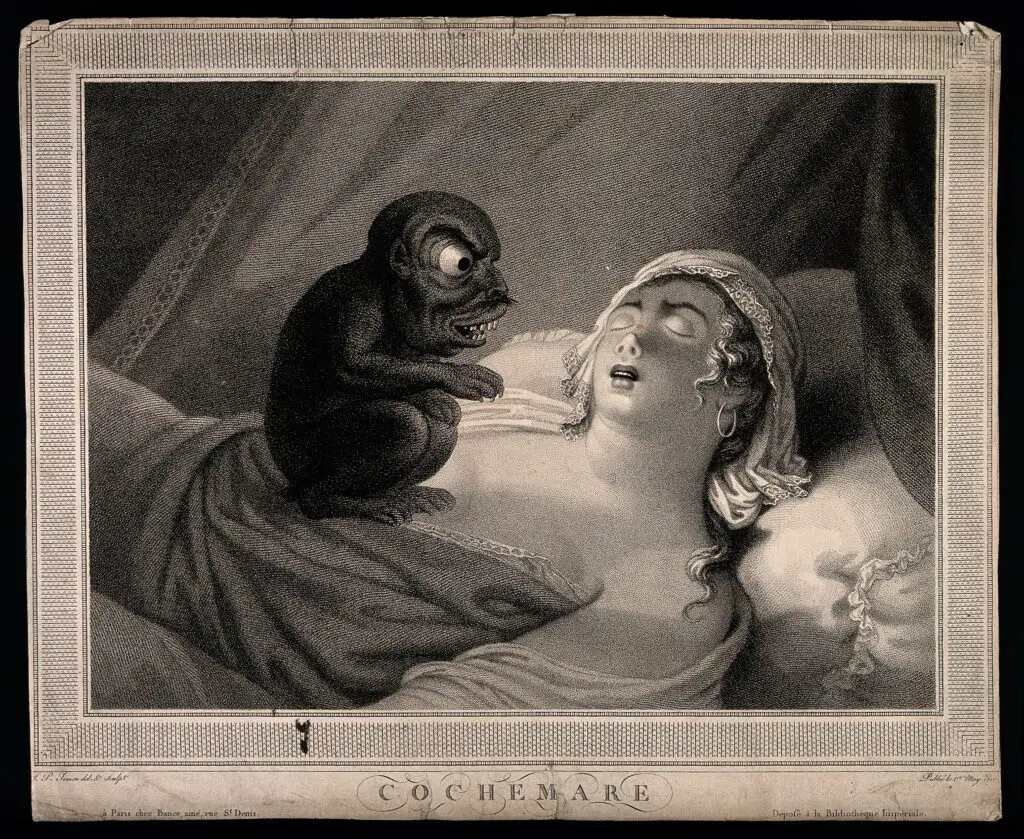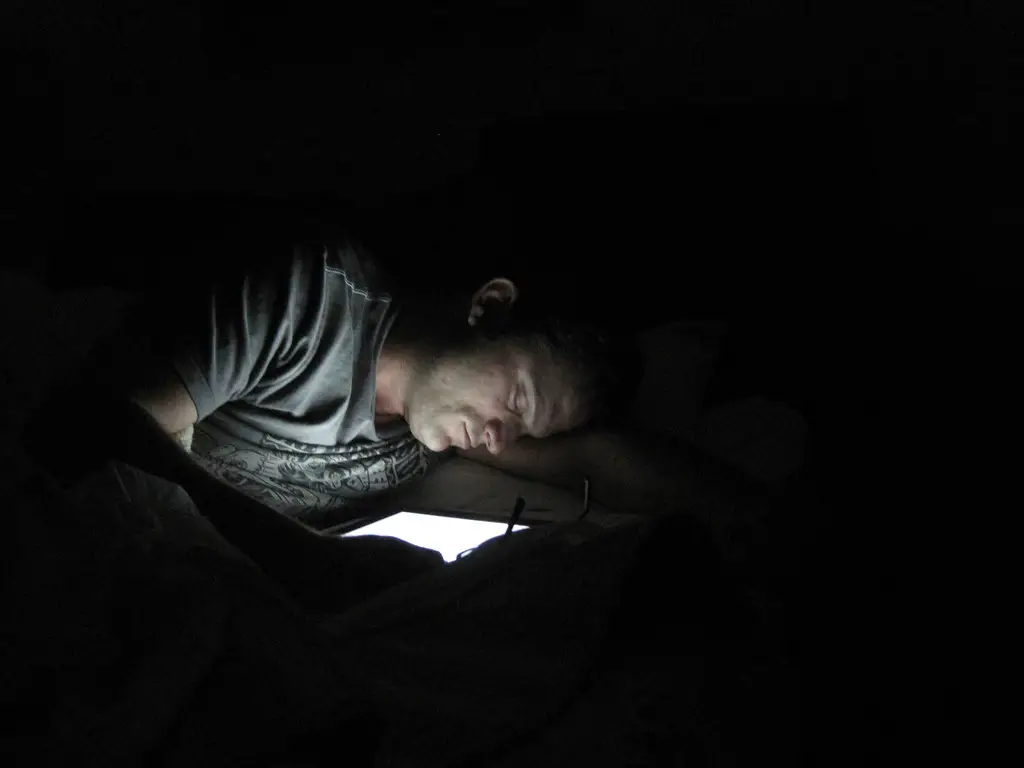You ever wake up at 3AM for no apparent reason—just boom, eyes open, staring into the abyss like your brain hit a panic switch? Yeah, same. At first, it’s kinda whatever. You roll over, scroll your phone, maybe think about that one awkward thing you said in 2013. But when it starts happening every night? Suddenly it feels like your body’s got a secret agenda—and it’s not one you signed off on.
Turns out, there’s a reason your internal alarm clock is stuck on “witching hour,” and spoiler: it’s not just a full bladder or haunted vibes. From hormone drama to blood sugar dips and even your bedtime snack choices, your body has a whole list of reasons it might be throwing shade at your sleep. Let’s unpack the real deal behind those 3AM wake-ups—and more importantly, how to shut them down so you can get back to dreaming about your weird celebrity crush in peace.
1. Your Liver’s Pulling an All-Nighter

Fun fact: Traditional Chinese Medicine believes that between 1AM and 3AM, your liver is in detox mode. While that might sound a little woo-woo, Western science backs up the idea that your liver does some serious heavy lifting at night—especially after drinking. Per the New York Times, alcohol can disrupt your sleep in two big ways: it sedates you at first, but then messes with REM sleep later, often waking you up around—you guessed it—3AM.
If you’re waking up dehydrated, hot, or with a racing heart, your liver might be throwing a tantrum. Cut off booze at least 3 hours before bed (sorry, nightcap lovers), and drink water with electrolytes before sleep. Add in some liver-friendly foods like leafy greens and turmeric during the day. If you’re taking meds that require liver processing, talk to your doc about timing. And maybe give your liver a thank-you hug—it’s working overtime while you’re drooling on your pillow.
2. Your Blood Sugar Is Dropping Like It’s Hot

If you tend to crash around 3AM like a phone on 1% battery, your blood sugar could be the culprit. A sharp dip in glucose can send an SOS to your brain, triggering adrenaline and cortisol to wake you up—just in case you feel like running a marathon in the dark. According to Hopkins Medicine, nocturnal hypoglycemia is a sneaky but common sleep disruptor. And guess what? It’s especially common if you eat late, drink alcohol, or skip dinner altogether.
To fix this, ditch the sugar bomb snacks before bed (looking at you, cookies and wine). Instead, go for a small protein-rich bite—like a boiled egg or a spoonful of almond butter. Also, watch your caffeine intake earlier in the day; it can mess with your insulin sensitivity. For anyone on medications that affect blood sugar (including insulin), double-check timing and dosage with your doctor. A stable night = a smoother morning. And yes, your 3AM self will thank you.
3. Your Cortisol Levels Are Having a Midnight Rave

Cortisol—the hormone that’s basically your body’s personal alarm system—should be chill at night and slowly rise in the early morning. But if stress has turned your nervous system into a drama queen, you might get a cortisol spike way too early. According to Healthline, stress-induced cortisol surges are a common reason people wake up around 3 or 4AM. The worst part? It often happens before you’re even aware that you’re stressed out.
The fix? Try a calming bedtime routine like journaling or guided meditation, and skip the doomscrolling (your ex’s Instagram doesn’t need another stalk at midnight). You can also talk to your doc about adaptogens like ashwagandha or rhodiola—herbs that help regulate cortisol. Keep your room dark, cool, and device-free for bonus points. And if you need a snack before bed, go for something with protein to keep blood sugar steady. Basically, treat your nervous system like a toddler—soothe it, tuck it in, and for the love of melatonin, keep it away from chaos.
4. You’re Stuck in a Fight-or-Flight Loop

Your brain doesn’t know the difference between “running from a bear” stress and “forgot to send that email” stress. It just responds. And when your sympathetic nervous system gets stuck in overdrive, it’ll boot you out of sleep like it’s ejecting a floppy disk from the ‘90s. PubMed explains that chronic anxiety or even subconscious stress can trigger mid-sleep awakenings, especially around 3AM when your REM cycles are lighter.
Breaking the cycle means calming your nervous system down before bed. Enter: breathwork, progressive muscle relaxation, and good old-fashioned lavender essential oil. Even something as simple as a warm bath (not hot!) can do wonders for lowering your core temp and signaling sleep mode. Consider cutting down on overstimulation—yes, that includes your fifth true crime podcast of the day. And if you really want to go full zen, try binaural beats or white noise. Your body deserves a break from red alerts, even if it’s just during sleep.
5. You’re Actually Depressed (But It’s Sneaky)

Waking up at 3AM every night and then spiraling into a mental TikTok of everything wrong with your life? Yeah…that might not be random. According to Medical News Today, early-morning awakening is one of the lesser-known symptoms of depression—especially the kind that sneaks in without dramatic mood swings or full-blown sob sessions. It’s called “diurnal mood variation,” and it can leave you exhausted but inexplicably wide awake when it’s still dark out.
The fix isn’t as simple as herbal tea and blackout curtains. This one might need a chat with your therapist or primary care provider. Cognitive behavioral therapy for insomnia (CBT-I) has been super effective for folks dealing with both sleep and mood issues. Also, make a morning plan you can actually look forward to, even if it’s just a silly playlist or a walk with a friend. Don’t brush this off as just “getting older” or “bad sleep habits”—your brain could be asking for help. And it’s better to answer that call at 2PM than 3AM.
6. Your Room Is Basically a Sleep-Hating Sauna

Temperature matters more than you think when it comes to uninterrupted sleep. If your bedroom is too hot or even slightly stuffy, your body might jolt you awake at 3AM like it just got tossed into a furnace. Your core temperature needs to drop slightly to maintain deep sleep, and when your environment doesn’t cooperate, your body hits the panic button. You might toss, turn, or even wake up sweaty and annoyed without realizing why.
Try lowering your thermostat to 65–67°F—yes, that might feel chilly at first, but your sleep self will be obsessed. Breathable sheets and cooling pillows are also game-changers. If you sleep with a partner who radiates heat like a busted radiator, maybe a separate blanket situation is in order. Keep your curtains drawn to block morning sun and consider a fan, not just for airflow but for that sweet, sweet white noise. Even a cool shower before bed can help signal to your body that it’s time to wind down. Your sleep is basically a delicate little soufflé—don’t let a sweaty room make it collapse.
7. You’re Drinking Too Much Water… at the Worst Time

Hydration is great. Being hydrated at 3AM because your bladder’s throwing a rager? Not so great. If you’re waking up regularly to pee—and not just once in a while—it could be because you’re guzzling water too close to bedtime. Your kidneys don’t shut off at night; they just get quieter. But if you’re flooding them with liquids at 9PM, they’ll absolutely RSVP to the midnight bathroom party.
Start front-loading your water intake earlier in the day, especially in the morning and afternoon. Then taper off around dinner, with just small sips after. If you’re waking up to pee and can’t fall back asleep, try dimming your lights as you walk to the bathroom—bright light exposure will scream “WAKE UP!” to your brain. Bonus tip: cut back on salty snacks in the evening, since they make you thirstier. And while we’re here, let’s just say it—stop scrolling on the toilet. You’ll be there twice as long and twice as awake.
8. Your Sleep Schedule Is Chaotic—and Your Body Is Confused

If your bedtime changes more often than your favorite Starbucks order, your internal clock is probably screaming into the void. Your circadian rhythm likes routine—same sleep and wake times every day, even weekends. But if you’re staying up till 1AM on Fridays and expecting to feel rested Monday morning, think again. That inconsistency messes with your body’s production of melatonin, and suddenly, 3AM becomes your new unofficial wake-up call.
Try going to bed and waking up within the same 30-minute window every day. Yes, even on Saturdays. Your future well-rested self will high-five you. Also, expose yourself to natural sunlight in the morning—it helps reset your internal clock. If your schedule’s been wild for a while, give it a week or two to adjust. And no, hitting “reset” doesn’t mean an all-nighter followed by an early bedtime. You’re not a college student anymore. Probably.
9. You’re in Perimenopause and No One Told You

If you’ve been waking up sweaty, anxious, and ready to cry or rage at the moon, hi—welcome to hormone hell. Even if your cycle still looks semi-regular, your estrogen and progesterone levels might be doing gymnastics in the background. This hormonal rollercoaster can lead to early morning wake-ups, heart palpitations, and mood swings that hit harder than your old high school crush. And surprise: perimenopause can start in your late 30s or early 40s.
The 3AM wake-up is a classic symptom. Your body might feel amped, anxious, or overheated for no reason. Keep a sleep journal to track patterns—you might notice changes in tandem with your cycle. Talk to your doctor about hormone levels if you’re consistently miserable. Simple fixes like magnesium supplements, cooling pillows, or cutting caffeine after noon can help a lot. And yes, you’re allowed to be annoyed no one warned you about this phase in sex ed.
10. You’re Having Weird Dreams That You Don’t Even Remember

Dreams aren’t always peaceful beach picnics with Chris Evans. Sometimes they’re full-on cinematic chaos, and even if you don’t remember them, they can jolt you awake. The thing is, most REM sleep happens in the second half of the night—right around the 3AM zone. So if you’ve got unresolved anxiety, a spicy meal in your gut, or you fell asleep watching a horror movie trailer (rookie move), your brain might be staging a drama that boots you right out of bed.
Start winding down with something ultra chill—like a light podcast, soft music, or a cozy audiobook. Avoid thrillers, crime dramas, or TikToks with chaotic background music (you know the ones). Journaling before bed can also help unload anxious thoughts so they don’t hijack your dreams. If you’re waking up feeling unsettled or panicked, take a few deep breaths and sip some water—don’t immediately reach for your phone. Let your body re-ground itself. And hey, if you do remember a weird dream? Write it down. You might just have a screenplay on your hands.
11. Your Gut Is Pissed Off and It’s Taking You With It

Let’s get real—your digestive system might be the diva that keeps interrupting your sleep. Late-night snacking, heavy dinners, or spicy foods can all cause indigestion that flares up hours after you’ve conked out. If your body’s busy trying to digest an entire plate of nachos at 1AM, it’s no wonder you’re wide-eyed by 3. Gas, bloating, reflux—these nighttime gut gremlins can be subtle but super disruptive.
Eat earlier if you can—think dinner before 7PM, not 9. Cut down on super-rich or acidic foods if you’re prone to reflux. Try sleeping slightly elevated if you notice pressure in your chest or throat when you wake. And consider taking a probiotic to keep your gut flora chill. If things are really out of whack, talk to a doctor about food intolerances or GERD. You might also want to track which foods are consistently giving you grief. Your gut has opinions. And unfortunately, it loves to share them at ungodly hours.
12. You’re Addicted to the Glow of the Doom Rectangle

You already know screens before bed are bad, but let’s talk about what they’re actually doing to you. That phone, tablet, or laptop emits blue light that messes with your melatonin production—basically, the hormone that tells your body, “Yo, it’s sleepy time.” Even if you manage to fall asleep after a scrolling session, that disrupted melatonin cycle can make your sleep lighter, more fragmented, and more likely to break at—you guessed it—3AM.
The solution? No screens for at least 30–60 minutes before bed. Try a book, a puzzle, or even folding laundry if you’re desperate (hey, it works). If you must look at a screen, use night mode and blue light filters. Also, stop checking the time when you wake up—it only stresses you out more. Consider charging your phone in another room altogether. If your brain associates bed with binge-watching and scrolling, it’s no wonder it won’t fully power down. Give your eyeballs a break. They’ve had enough already.
